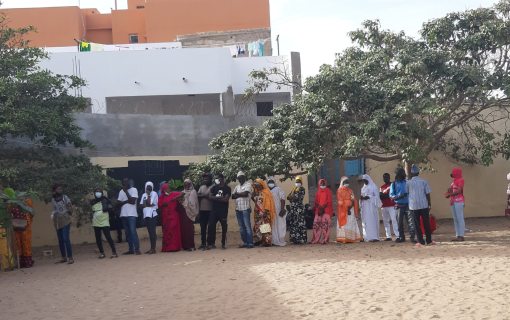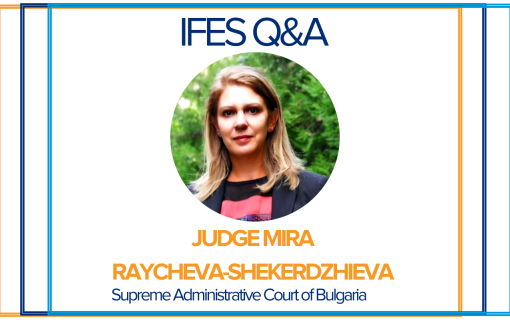
Alternative Dispute Resolution in Elections: A Practitioner Brief
Alternative Dispute Resolution in Elections
While formal dispute resolution processes in elections are vital to upholding the rule of law, the introduction of alternative dispute resolution (ADR) mechanisms may be beneficial, particularly in fragile and post-conflict states or new democracies where disputes must be resolved quickly to avoid violence or where there is very low trust in the judiciary. The case studies in this report demonstrate that ADR mechanisms, if designed and implemented effectively, can ensure more accessible and timely resolutions than formal mechanisms at a lower cost. The use of mediation or conciliation for certain types of pre-election disputes can lead to greater community engagement (including of non-traditional actors), promote accessibility, mitigate impunity for electoral violations, and reduce burdens on the courts and the election management body (EMB).
Our research also highlights that a well-designed and trained ADR body can enhance the role of women and provide a culturally appropriate mechanism for dispute resolution, while preventing and defusing tensions.
This report also highlights the potential risks and challenges to ADR, particularly in contexts where the legal framework, mandate, and procedures are unclear. Inadequate training of ADR practitioners can result in mediators behaving in a partisan manner or failing to guard against power imbalances or human rights abuses, which can further increase tensions or erode trust. Finally, a lack of stakeholder awareness on how to access ADR mechanisms may leave the public with the perception that there is no avenue for justice in some communities.
Due to the informal nature of ADR mechanisms, EMBs have rarely collected data on the type and number of disputes handled through ADR, creating a challenge for research and a missed opportunity to draw on lessons learned, promote successful initiatives, and build trust in the EMBs’ capacity to address legitimate disputes. This practitioner brief attempts to remedy the lack of information on the use of ADR in elections and presents a series of case studies to highlight lessons from diverse country experiences. This paper also proposes recommendations to improve the design and implementation of ADR in elections.
Alternative Dispute Resolution in Elections: Practitioner Brief
Table of Contents
Written by Fritz Edward Siregar, PhD (Indonesia Bawaslu, Former Commissioner)
Purpose and Scope of this Paper
Summary Recommendations
Applicable Standards
Types of ADR in Elections
Legal Basis for ADR In Elections
Models of ADR Mechanisms Used in Elections
Types of Disputes
Determining Whether Disputes Are Suitable for ADR
Advantages of Using ADR
Disadvantages or Risks of Using ADR
Lesson 1: ADR structures should be clearly defined and transparent, and training should be provided for ADR practitioners
Lesson 2: The ADR mandate of an institution, and procedures used for ADR, should be clear and set in advance of elections
Lesson 3: It is important to account for the country’s legal tradition, as well as relevant cultural traditions and practical factors when designing an ADR mechanism for elections
Lesson 4: Multi-stakeholder coordination, led by the EMB, can help prevent conflict and fight impunity
Lesson 5: The use of ADR in elections can provide an opportunity to enhance the role of women, youth, and marginalized groups in electoral justice
Lesson 6: Court-ordered or judiciary-led ADR is an avenue worth exploring for pre-election disputes
Guidance for Practitioners
Annex I: Case Studies
Annex II: An ADR Success Story
Annex III: List of Contributors














